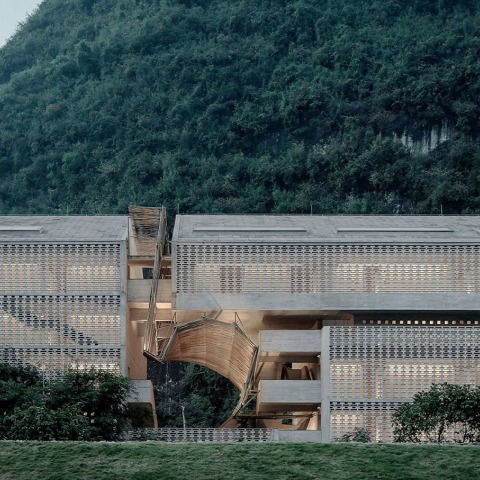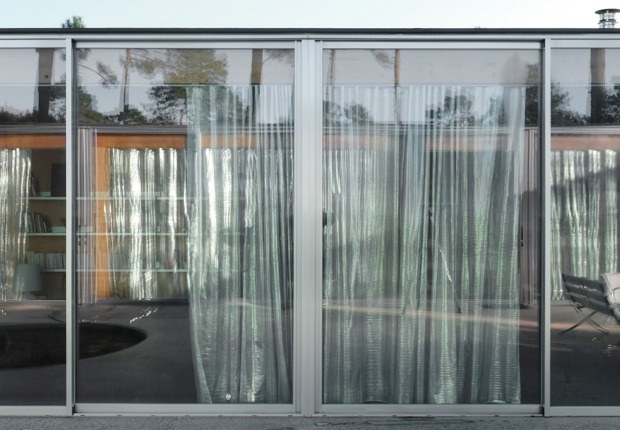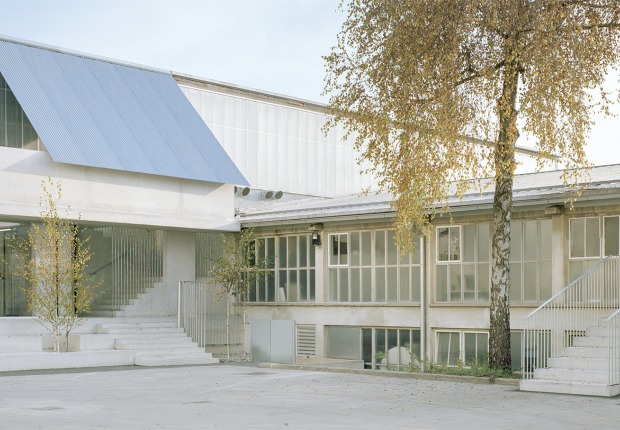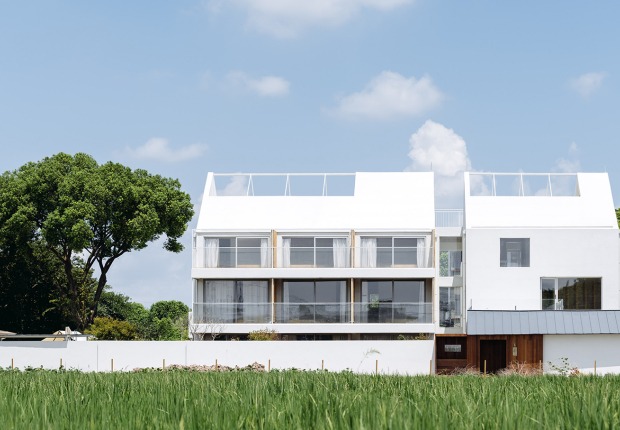Comprising a series of new and repurposed buildings, the Alila Yangshuo hotel incorporates the surrounding landscape by way of open spaces and water features like a pool and a large reflecting pond that act as a continuation of its site.
The main guestroom building features simple yet strong lines and a combination of local stone and bamboo in the perfect balance of hard and soft. Designed in harmony with the natural landscape, it creates the feel of exploring a karst cave and embraces nature’s mystery.
The project involved retaining and repurposing the existing structures and introducing new accommodation buildings that complement their industrial aesthetic.
Flanking the old mill are a pair of new blocks housing a variety of rooms and guest suites. These additions feature gabled forms and a material palette that references the existing architecture.
The larger building called the Sugar House Retreat contains rooms with private balconies at the rear that look out across the mountain scenery.
The two-storey Garden Townhouse accommodates a series of suites facing the old buildings and ponds. At the rear, the upper suites open onto a private terrace, while the ground-floor suites look onto a bamboo garden.
Perforated screens created by combining solid and hollow concrete blocks help to provide natural light and ventilation throughout the buildings and circulation areas.
Along the front of the Sugar House Retreat, these surfaces screen the building from the nearby road. This side of the building is given over to corridors and staircases that connect the different levels.
The circulation areas are intended as an extension of the paths that extend throughout the complex. They are punctuated by full-height voids that function as open-air lobbies providing access to various staircases.
These openings are intended to evoke caves found in the surrounding mountains and offer views of the adjacent cliff face. The central void contains a sculptural bamboo canopy that meanders down through the floors.

































































